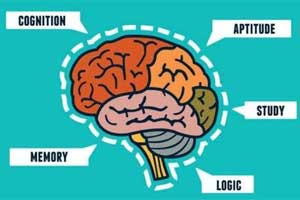- Home
- Editorial
- News
- Practice Guidelines
- Anesthesiology Guidelines
- Cancer Guidelines
- Cardiac Sciences Guidelines
- Critical Care Guidelines
- Dentistry Guidelines
- Dermatology Guidelines
- Diabetes and Endo Guidelines
- Diagnostics Guidelines
- ENT Guidelines
- Featured Practice Guidelines
- Gastroenterology Guidelines
- Geriatrics Guidelines
- Medicine Guidelines
- Nephrology Guidelines
- Neurosciences Guidelines
- Obs and Gynae Guidelines
- Ophthalmology Guidelines
- Orthopaedics Guidelines
- Paediatrics Guidelines
- Psychiatry Guidelines
- Pulmonology Guidelines
- Radiology Guidelines
- Surgery Guidelines
- Urology Guidelines
Hormone therapy may slow down cognitive decline in postmenopausal women

The administration of menopausal hormone therapy (MHT) in right combination and dosage may slow cognitive decline in postmenopausal women as they age, according to a study published in Menopause, the journal of The North American Menopause Society (NAMS).
The study was conducted by Byung-Koo Yoon, Department of Obstetrics and Gynecology, Samsung Medical Center, Sungkyunkwan University School of Medicine, Seoul, Korea and colleagues to explore the therapeutic potential MHT in women with mild cognitive impairment (MCI).
Hormones affect just about everything that goes on in a woman's body varying from reproductive function and sexual libido to weight gain and overall mood.
Mild cognitive impairment (MCI) is an intermediate stage between cognitive decline- a sign of aging and dementia. Persons with MCI have an increased risk of progressing to Alzheimer disease or other dementia, with roughly 20% of this population crossing over from MCI to a more severe level each year. To date, no pharmacologic treatment has proven effective in managing MCI.
The study reviews the results from a recent Korean study regarding the effect of hormone therapy on cognitive function. In this, postmenopausal women who were diagnosed with MCI and taking donepezil were followed over a 24-month period and showed that cognitive test scores for the women who received hormone therapy significantly increased during that time.
Although the study group was small, the study offers promising results, demonstrating that the combination of an oral progesterone and transdermal estradiol can slow down cognitive decline. This is the first known study to evaluate the effect of hormone therapy on MCI.
"This encouraging, small pilot trial suggests a possible benefit of hormone therapy when given to women diagnosed with MCI who are also taking donepezil, a cholinesterase inhibitor," says Dr. JoAnn Pinkerton, executive director of NAMS. "Higher global cognition was seen in two of the three key evaluation criteria in those women using estradiol gel plus an oral micronized progesterone compared with those in the placebo group. Larger trials are needed to evaluate the effect of hormone therapy use before the full onset of Alzheimer disease."
Based on the study, the authors concluded that long-term MHT using percutaneous estradiol (E2) gel and oral micronized progesterone (MP4) might attenuate cognitive decline in postmenopausal women with MCI.
For further information click on the link: 10.1097/GME.0000000000001140

Disclaimer: This site is primarily intended for healthcare professionals. Any content/information on this website does not replace the advice of medical and/or health professionals and should not be construed as medical/diagnostic advice/endorsement or prescription. Use of this site is subject to our terms of use, privacy policy, advertisement policy. © 2020 Minerva Medical Treatment Pvt Ltd